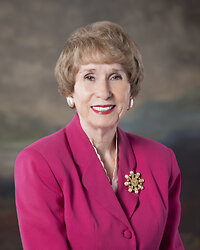I am proud to announce that I have been certified as a grief facilitator by David Kessler, a nationally known grief facilitator. During our training, David said something intriguing about buffalos, so I did a little research on the animals. One article I read said that the buffalos run into a storm because it doesn't take as long to go through it, and there is less suffering. That article also explained how cows react to a storm: they run away from the storm, which eventually catches up with them. This means the cows stay longer in the storm and suffer more. So the question each of us should ask ourselves is this: When a storm comes into my life, am I a buffalo or a cow?

Sometimes storms come into our lives without our permission. While we may not have a choice about a storm hitting us, we do have a choice of how we deal with it.
The cow response is to pretend that the storm does not exist. One cow response is not to go to the doctor because the rationale is, "If I don't check it out, it doesn't exist." Another cow response is, "It's someone else's fault." If we are always blaming others and not looking at our role in creating a problem, we will not change; the other person will have to change. "I could be happy if you were who I wanted you to be." Some of us give this cow response: "I will do it tomorrow." But, as we know, tomorrow is always the day after today!
How about this cow response: "I won't go to counseling; we can handle it ourselves." Asking for help is not a sign of weakness nor does going to a grief group show a lack of faith. There are situations when we need help.
When we bring our grief out into the daylight, we have power over it. That is what we do in a grief group: bring it out into the daylight, and, in truth, we suffer less because we are dealing with our hurt and grief.
By using the buffalo approach, we are facing our problems, and by doing this, our storms can teach us to grow, make us stronger and give us a sense of pride. This approach requires facing what we are most afraid of. The buffalo approach requires strength and courage.
Here are some tips for responding like a buffalo:
Buffalos run into a storm because
it doesn't take as long to go through it,
and there is less suffering.
it doesn't take as long to go through it,
and there is less suffering.
Here are some tips for responding like a buffalo:
First, decide to stand up to your fears and battle them.
Most things worth gaining require some amount of discomfort. Embrace these uncomfortable feelings as part of the growth process.
Seek out support and insight from others who have walked the path you are embarking on, including friends, family, or a support group.
Dr. William E. Austin is a licensed psychotherapist and holds a Doctor of Divinity degree. He is a therapist with Tidewater Pastoral Counseling Services . He is well known for his warmth and sense of humor. His book, Creating Our Safe Place - Articles on Healthy Relationships, can be purchased through www.amazon.com.
Tidewater Pastoral Counseling: 623-2700
CURRENT COLUMNS
Children First 
Safety Firstby Becky AdamsOn The Front Porch With You 
Tell Me Your Storyby Rob LauerRelationships 
Creating Your Own Union Cityby Dr. Bill Austin

